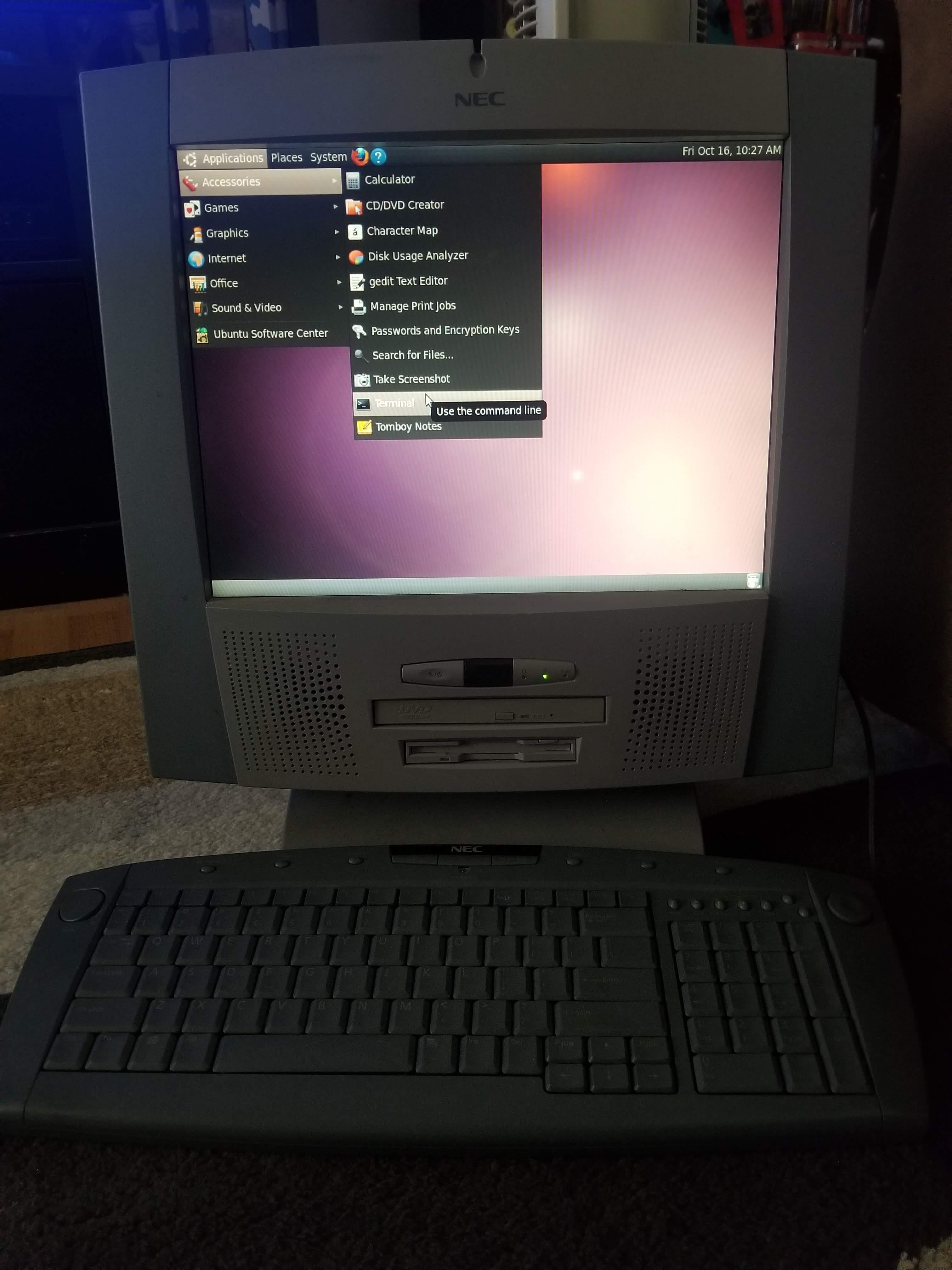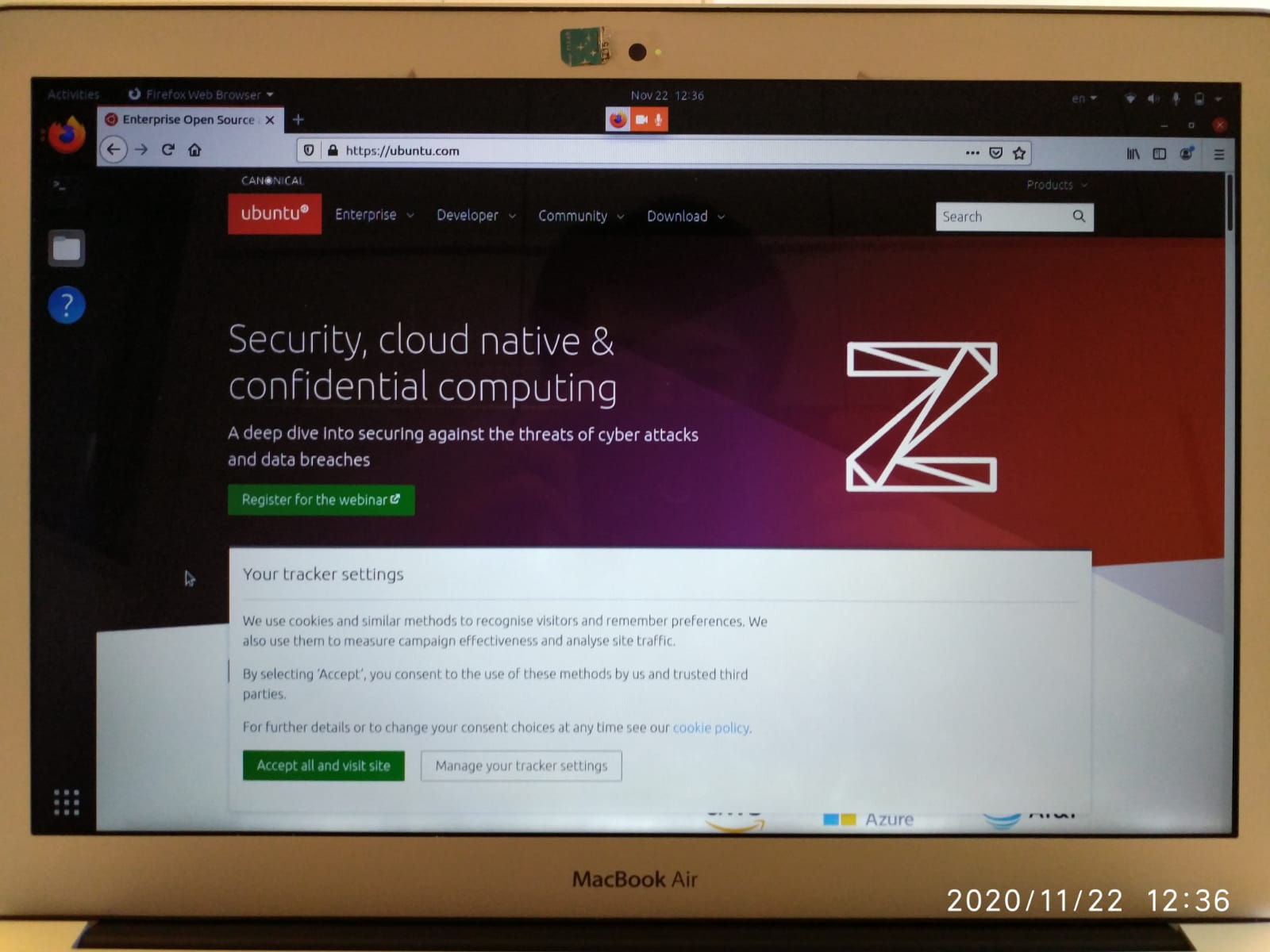My Ubuntu Story™ is probably one of the geekier examples that one might read about, as the Ubuntu aspect starts in 2004 with a conversation on Usenet1 that migrated over to Slashdot before becoming a series of posts published on a "proto-blog" powered by Michel Valdrighi's B2/cafelog2, but it really begins in 1995 when I was introduced to Slackware Linux while visiting the University of Toronto.
Way back in the 90s, there were just a handful of Linux distributions and I would often bounce between Slackware and SUSE. By mid-2001 I had grown tired of distro-hopping and, in true geek fashion, decided I would create my own distribution. It was called NatashaOS and it was ... crashy. The underlying bits were fine, as the proper Linux kernel and base packages were pretty decent, but I wanted my UI to be flashy and cool, like the LiteStep3 alternative shells one would see people apply to their Windows 9x gaming machines (often inspired by something seen in Japanese anime4). A normal person at this point would probably ask: "Wait. If all you wanted was a better desktop, why didn't you build a new DE for Slackware or SUSE?"
A reasonable question. However, a 22 year old male is hardly a model of reason. Guys of that age generally consist only of ambition, ego, and pizza. There is no room for perspective or patience.
So NatashaOS consumed a great deal of my time. This effort was the reason I gave up gaming – because there wasn't time – and offered a remarkable opportunity to learn about writing graphics drivers for S3 Trio5 and, later, Savage video cards. However, as anyone who has ever written hardware drivers can attest, the slightest thing can bring a system down. This was the problem that I fought with for all of 2002 and most of 2003 ... until the first version of Fedora Linux was released.
Fedora had it all. "Great" hardware support. A decent desktop environment. A community of invested people. Nothing I might assemble could ever compete with the might of Red Hat. So I made the switch and everyone lived happily ever after.
Well ... until the summer of 2004 when there was a lot of buzz in a Usenet group – alt.os.linux, I think – about a new project that wanted to make Linux "human friendly". It had an intriguing name and lofty ambitions. I dabbled with it from time to time on my "l33t" AMD Athlon 3200+ system6 but, at that point in my life, I had to be focused on getting things done. That meant using Windows for "work" and Fedora for work.
Every couple of weeks I would swap a hard drive out of the workstation or notebook to install Ubuntu for a weekend to see how the project was progressing. This went on for almost two years. It wasn't until Dapper Drake – 6.06 – was released on June 1, 2006 that I saw Ubuntu as being ready to replace Fedora on my systems. Ubuntu 6.06 managed to do everything I wanted to do with NatashaOS and everything I couldn't easily do with Fedora. Ubiquity made installations a breeze. The Humanlooks theme was visually appealing and smooth. Heck, I could even have both English and Japanese applications running without dealing with messy font problems!
At this point, Ubuntu replaced Fedora and became my primary desktop. I would still use Windows on work machines when mandated, and later use MacOS for other purposes, but Ubuntu is – and has been – my primary desktop and server distribution for well over 15 years.
Why haven't I switched to other distributions over the years? Probably because there has never been a need. There are certainly some interesting projects going on. Arch has become incredibly usable for average people. Bodhi Linux remains my favourite light-weight OS for machines that have CPUs older than my (retired) Palm Tungsten T37. EndeavourOS is poised to make waves in the near future. Heck, Fedora's SilverBlue could completely revolutionise the way technology is deployed and managed at most medium-to-large corporations, making familiarity with the OS a "smart career decision". But Ubuntu does everything I ask it to and then some. The fleet of servers I manage rarely need any attention and the desktop systems are rock solid so long as I'm not trying to mess around with ZFS in non-standard ways8.
Would I consider switching distributions in the future if something else came along? Of course. However, that something else would need to offer benefits that Ubuntu – and the community around it – cannot.
Looking at how much has changed since the days of Slackware, Usenet, Slashdot, B2, S3, and Palm handhelds, I feel much, much older than my age ... 🤪
- Wiki on Usenet
- Short history of WordPress precursor B2/cafelog
- LiteStep
- Does anybody else remember the iMac anime girl that was everywhere at the turn of the century?
- Wiki on S3 Trio
- You're usin' a 286? Don't make me laugh. Your Windows boots up in what, a day and a half? 🎶🎤🎶
- Wiki on the Palm Tungsten T3. After this, I went to an HP iPad 211 Enterprise running Windows Mobile 5 with a custom ROM ... then later an iPod Touch that made every previous mobile device look like a joke in comparison.
- The best way to learn about fixing file system problems is to break the file system. Try not to do this on your primary machine, though.


